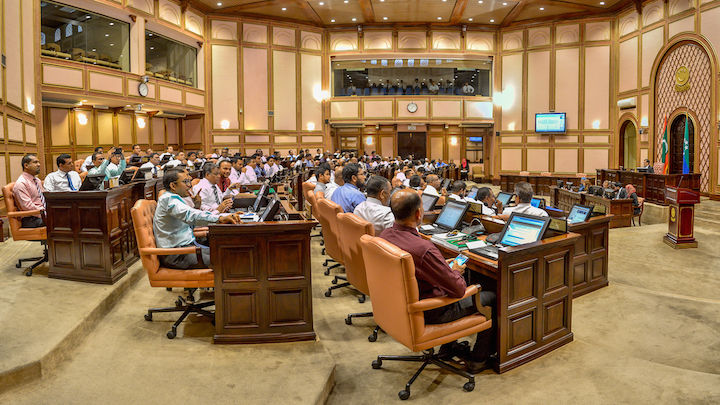Majlis creates new Islamic affairs council
The parliament has amended the 1994 Religious Unity Act to set up a new Supreme Council for Islamic affairs with the authority to issue fatwas or legal opinions on religious disputes.

13 Apr 2016, 09:00
The parliament has amended the 1994 Religious Unity Act to set up a new Supreme Council for Islamic affairs with the authority to issue fatwas or legal opinions on religious disputes.
The amendment bill proposed by ruling Progressive Party of Maldives MP Ahmed Rasheed Ibrahim was passed with 53 votes in favour and three against at Tuesday’s sitting of the People’s Majlis.
The five-member council is to comprise of two members chosen by the president, a judge selected by the chief justice, a board member of the Islamic University and a member chosen by the ministry of Islamic affairs.
The members of the council, its president and vice president would be appointed by the president for a five-year term, and will function under the Islamic ministry, according to the amendment passed yesterday.
Become a member
Get full access to our archive and personalise your experience.
Already a member?
Discussion
No comments yet. Be the first to share your thoughts!
No comments yet. Be the first to join the conversation!
Join the Conversation
Sign in to share your thoughts under an alias and take part in the discussion. Independent journalism thrives on open, respectful debate — your voice matters.




